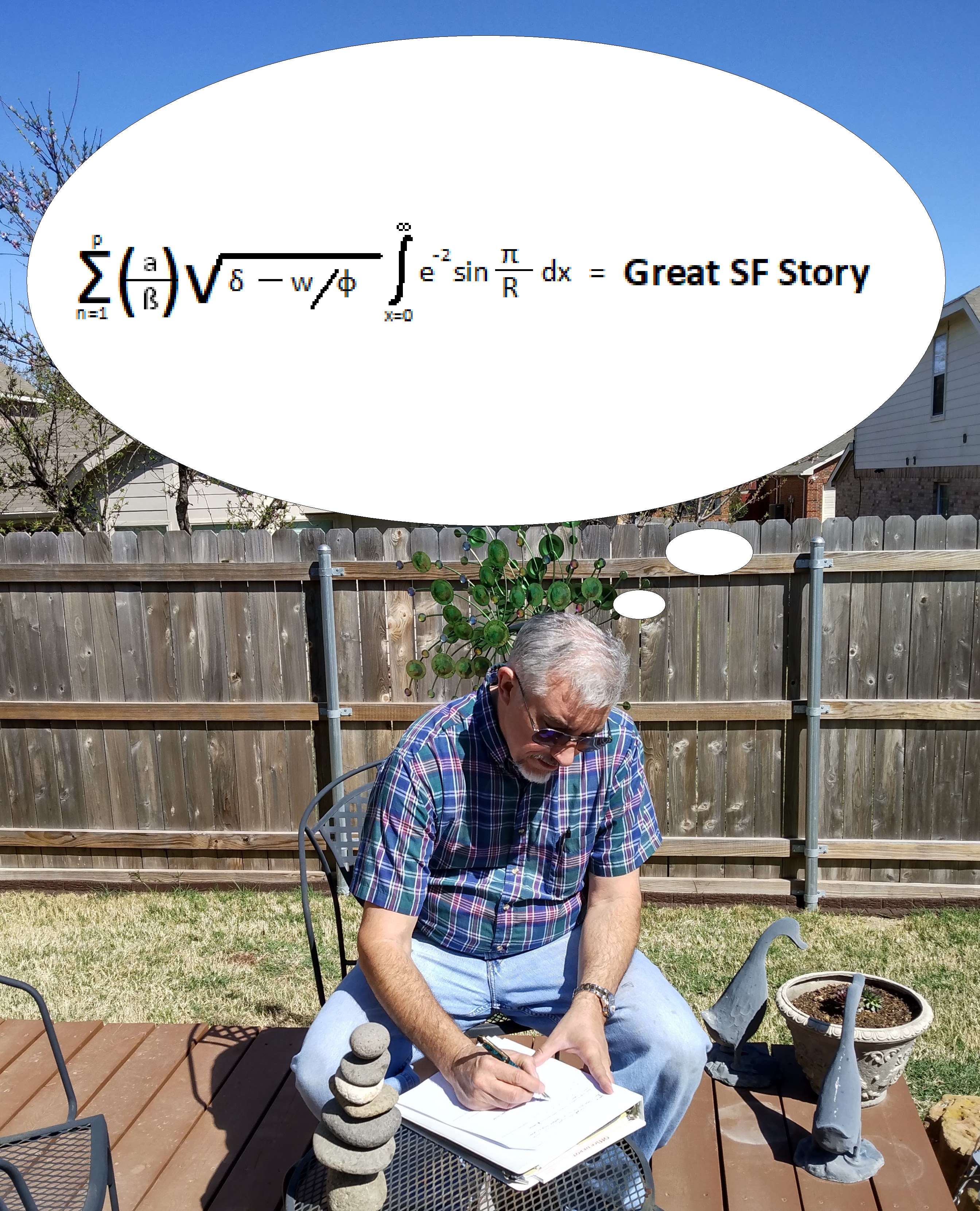If only we could write great SF by following a step-by-step process, or a connect-the-dots diagram, or a mathematical equation.
I seem to recall Isaac Asimov once said a good story maximizes the emotional impact on the reader. That definition starts out resembling an equation, but trails off into the unquantifiable chaos of human emotion.
NASA scientist Christine Corbett Moran did a nice mathematical analysis of what she enjoys about SF. She chose an interesting metric. First, she noted the point at which she became engaged enough in the book that she had to finish it. She divided the number of pages left after that point by the story’s total length. At the very least, it’s a good measure for determining how early a story grabbed her interest. She called the parameter engagement.
I tried a different approach to quantifying good SF. I listed twelve attributes I thought important (engaging protagonist, intriguing setting, interesting style, etc.) and performed a pair-wise analysis on them. This required comparing every attribute to each of the others to determine importance. Yes, it’s tedious, and yes, it forced me to make hard choices, but such are the hardships I endure for my readers.
My resulting list, from most important to least, is as follows:
- Logical Plot. Events must make sense in a cause-effect relationship.
- Engaging Protagonist. I have to care about the main character, and some lesser ones.
- Difficult Problem/Ingenious Solution. The problem should be important and appear impossible. The solution, unexpected and elegant.
- Consistent (or Explained) Motivations. The characters shouldn’t say or do things out-of-character. Or, if they do, I need to know the reason for the deviation.
- Believable Science. I can tolerate some stretching of science, but give me enough convincing techno-babble to make it seem plausible.
- Intriguing and Well-described Setting. Make your world fascinating and immerse me in it. Explore the implications to help it seem vivid and real.
- Plot Twists. The unexpected turn, the jaw-dropping surprise. A few of these keep me reading on.
- Interesting and Distinct Writing Style. If you choose words well, if your story flows like a stream with interesting ripples and eddies, I’ll follow you anywhere.
- Symbolism, Inside Jokes, and Easter Eggs. I’m a sucker for this stuff. I don’t always get them, but when I do, I feel like I’ve broken a secret code.
- Humor. Not all stories need humor, and not all writers pull it off well, but it’s a plus.
- Message. Don’t lecture me with a message or morale. Still, I like it when I finish a story and a day later realize what the author was really saying.
- Relevance to My Life. It’s nice when a character thinks and acts like me, but that’s not necessary for me to enjoy the story.
Your list of attributes would be different from mine, and even if some items match, the order of your list would be different. That’s why one reader’s “great!” is another’s “meh.”
Sorry, I don’t know the equation for writing a great science fiction story. If it exists, and if top SF authors know it, they aren’t posting it on their websites.
It’s possible, too, that our elusive equation might include terms like luck and timing, both largely out of the writer’s control.
Perhaps there’s no use searching for an equation to write great science fiction. Maybe it’s better to spend your time trying to write better stories. That’s the nonmathematical goal of—
Poseidon’s Scribe

